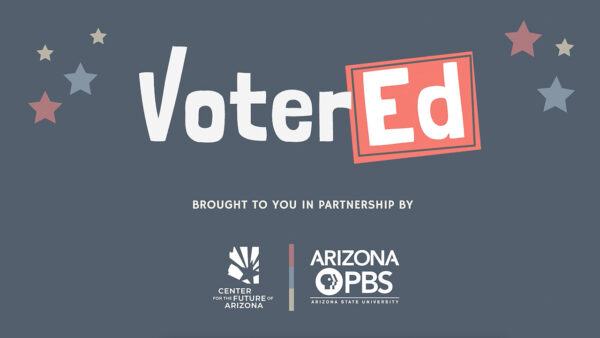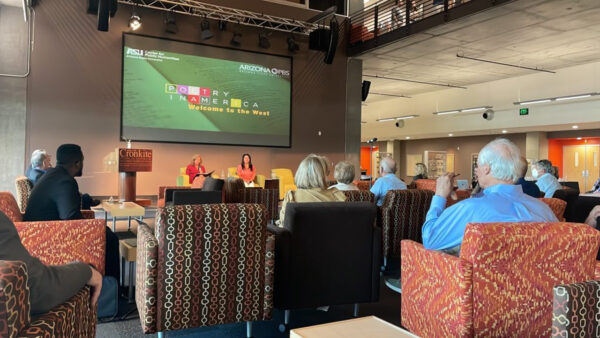Frontline “Sex Slaves”
Feb. 15, 2011
Twenty-one-year-old Katia (last name withheld) left home on what she believed would be a trip to buy goods in Turkey; instead she was sold into sexual slavery for $1,000 by the man who agreed to take her there. “He didn't look like a person who would do something like that,” said Katia's husband, Viorel. “He sold my wife for $1,000 because she'd given birth before … so as merchandise she was only worth $1,000. Girls who haven't had children are more expensive.”
In “Sex Slaves,” airing on Feb. 15, 2011, at 9 p.m. on Eight, Arizona PBS, Frontline follows Viorel on an extraordinary journey deep into the world of sex trafficking to try to find his wife, Katia, who was four months' pregnant when she left home, and then free her from the violent pimp who now “owns” her. Along the way, the production team takes a rare, hidden-camera look at the various traffickers, pimps and middlemen who illegally buy and sell hundreds of thousands of women each year. Lured by traffickers who prey on their dreams of employment abroad, many of the women are then kidnapped and “exported” to Europe, the Middle East, the United States and elsewhere. During this process, they may be sold to pimps, locked in brothels, drugged, terrorized and raped repeatedly. In Eastern Europe, since the fall of communism, sex trafficking has become the fastest growing form of organized crime, with Moldova and Ukraine widely seen as major suppliers of women in the global sex trade.
“How much will a girl cost?” co-producer Felix Golubev asks a trafficker in Moldova while posing undercover as an interested buyer from North America.
“Five hundred to 600 dollars — that's what I get,” replies the trafficker. “The final price is higher, but I have to share with the middleman and the guy who transports them.” When Golubev asks how he can be sure the girls won't run away, the trafficker tells him, “Once they arrive, be sure to take their passports away.”
Early in his search, Viorel receives help from an unlikely ally — Vlad (last name withheld), the man who initially sold Katia — whom Frontline manages to track down for an interview.
“Why did I phone [Viorel]?” Vlad asks himself. “To say that I felt guilty might sound absurd after what I did. However, strange as it may seem, guilt played its part.” Vlad helps Viorel contact Apo, the pimp who now has Katia. He also provides rare insight into the world of the traffickers. “Debt bondage represents the money that a girl is told she has to work off,” Vlad tells Frontline . “That amount is easily inflated if the pimp wants. That way, the debt never goes away, and she continues to work … without ever receiving a penny.”
As Viorel searches for Katia, viewers learn from other trafficked women what she might be enduring. “They took me to a villa and locked me in,” says Tania, 23, about her six months in captivity in Turkey. “We worked for as long as we had clients. They didn't see us as human beings, but just as flesh that they could use.” Twenty-eight-year-old Oksana was sold 13 times over an eight-month period before finally being allowed to return to her native Ukraine. “There were 22 girls in a three-bedroom apartment, and each girl got beaten up at least once a day. One girl ran away and went to the police for help, but she was taken back to her pimp. Policemen … used our services.”
As Katia's story is brought to an extraordinary conclusion, “Sex Slaves” exposes the government indifference that allows the global sex trade to continue virtually unchecked. “The prosecution rate is abysmal in most of these countries,” says Ric Esther Bienstock, producer and director of “Sex Slaves . ” “The official line is, ‘We're doing as much as we can; we have a counter-trafficking unit; we're trying to prosecute.' … We know that there is a level of corruption; we know that there is bribery. But without the political will to address this, traffickers will continue to operate with impunity. That's why we set out to investigate this story.”
)





















